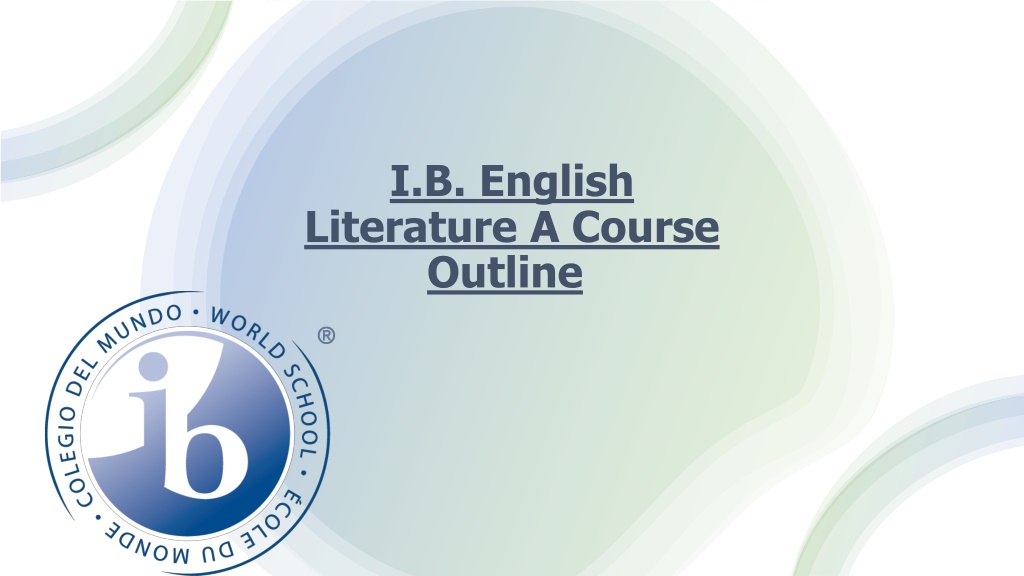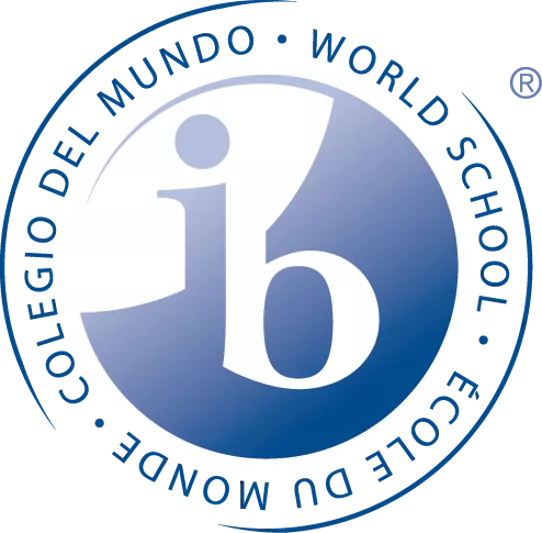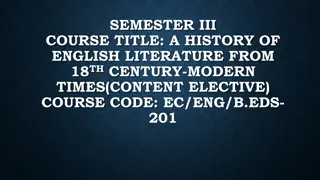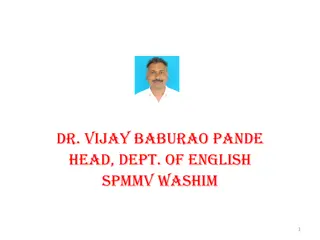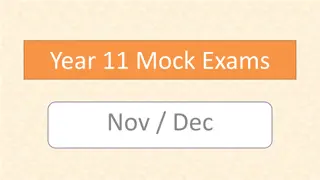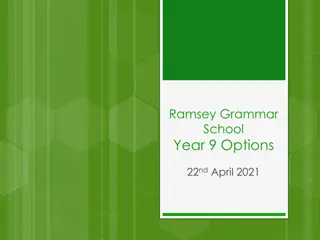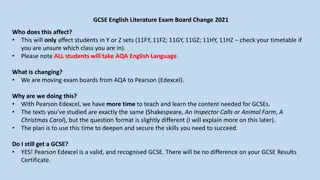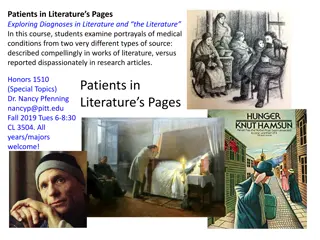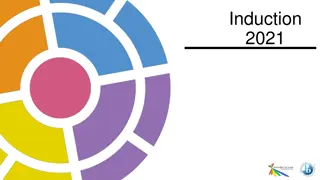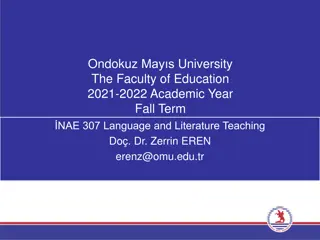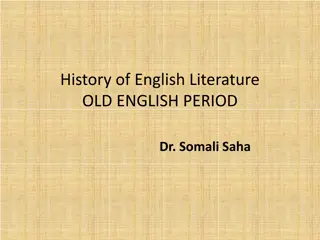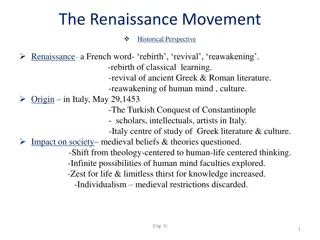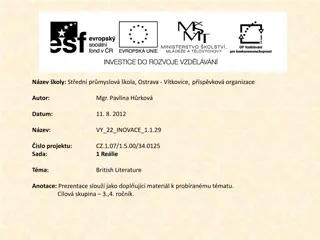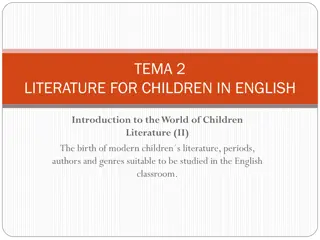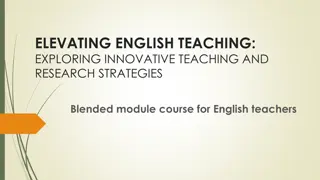IB English Literature A Course Overview
The IB English Literature A course focuses on concepts and inquiry, delving into various texts to explore different interpretations through close literary analysis. The course structure includes examination components and individual assessments. Expectations for students emphasize engagement, organization, timely completion of tasks, and academic integrity.
Download Presentation

Please find below an Image/Link to download the presentation.
The content on the website is provided AS IS for your information and personal use only. It may not be sold, licensed, or shared on other websites without obtaining consent from the author.If you encounter any issues during the download, it is possible that the publisher has removed the file from their server.
You are allowed to download the files provided on this website for personal or commercial use, subject to the condition that they are used lawfully. All files are the property of their respective owners.
The content on the website is provided AS IS for your information and personal use only. It may not be sold, licensed, or shared on other websites without obtaining consent from the author.
E N D
Presentation Transcript
I.B. English Literature A Course Outline
How is the course structured? The course is structured around the two central ideas of concepts and inquiry: We will study a variety of texts across the two years and consider the different interpretations that can be made of texts and underpinning these with close literary analysis. As the IB Diploma is a world course, it is also essential that you learn about the contextual considerations surrounding each text and use this information to inform your interpretations of it.
How is the course assessed? The course is assessed differently depending on if you are a HL or SL student: Higher Level Standard Level 35% 35% Paper 1 Examination Guided Literary Analysis (2 hours and 15 minutes) The paper consists of two passages from two different literary forms. You will write an analysis of both of the passages. Paper 1 Examination Guided Literary Analysis (1 hour and 15 minutes) The paper consists of two passages from two different literary forms. You select one passage and write an analysis of it. 25% 35% Paper 2 Examination Comparative Essay (1 hour and 45 minutes) This paper consists of four general questions. In response to one question, you write a comparative essay based on two works you have studied in the course. Paper 2 Examination Comparative Essay (1 hour and 45 minutes) This paper consists of four general questions. In response to one question, you write a comparative essay based on two works you have studied in the course. Internal Assessment Individual Oral (15 minutes) Using two extracts from two texts you have studied (one of which must be in translation) you will deliver a 10 minute prepared response to your teachers, followed by 5 minutes of questions by one of your teachers. The oral is recorded and then sent away to be moderated by the IB. 20% Internal Assessment Individual Oral (15 minutes) Using two extracts from two texts you have studied (one of which must be in translation) you will deliver a 10 minute prepared response to your teachers, followed by 5 minutes of questions by one of your teachers. The oral is recorded and then sent away to be moderated by the IB. 30% Higher Level Essay You will written an essay on one literary text or work we have studied during the course. The essay must by 1,200 1,500 words in length and can be in response to a title of your choice. 20%
What are the expectations? We have a few very simple expectations of you as students; we require you to: Engage and participate in lessons bringing all of the necessary equipment with you Keep all of your notes and work together in a well-organised folder which you bring with you to every lesson this is your Learner Portfolio which the IB expect you to keep as evidence of the work you have completed during the course. If you decide to work electronically then you will need to regularly print a copy of your notes and keep them in a physical file Complete all tasks, including homework, to the very best of your ability Meet all deadlines set, speaking with us in person in advance of a deadline if you have a problem in meeting it Purchase and read the set texts promptly to ensure you are ready for the next stage of the course Ask when you are unsure about anything Only ever submit work which is your own with citations to other material you have read or used made clear
What else do I need to know? There are three areas of exploration which underpin the course: Intertextuality: connecting texts Looking at similarities and differences between texts Examining how texts connect over different time periods and how concepts evolve and change Considering how our perceptions of texts are different depending on when we receive them Considering how perspectives on global issues evolve and change Learning about how and why writers use specific literary techniques to create different effects Examining connections between genres and how techniques can be used to create similar and different effects in these genres Looking at how writers use others texts as inspiration for their writing, for example through satirising them Time and Space Exploring the cultural contexts in which texts are written and understood Considering what was happening around the writer at the time at which they were writing Examining what views the writer puts forward and how these were shaped by events around them Looking at how our reading today may be different and why what has changed? Examining how literary texts can be read from different perspectives including literary critical perspectives The biography of a writer and their life experiences Readers, writers and texts Close consideration of the techniques writers use to construct meaning Thinking about how the reader has a role in constructing meaning Sharing, listening to and adapting your reading of a text through discussion and sharing of ideas Considering the use of similar techniques in different genres and the effects created Transforming a text between genres and considering the effects of changing choices on the reception created
We will spend lots of time exploring these in detail over the two years so don t panic if anything seems a little alien at first! At the end of your studies, you should be able to look back with confidence and see how what we have done has enabled you to explore these ideas.
Global Issues Global Issues These are integral to our course and your preparation for the Individual Oral.
